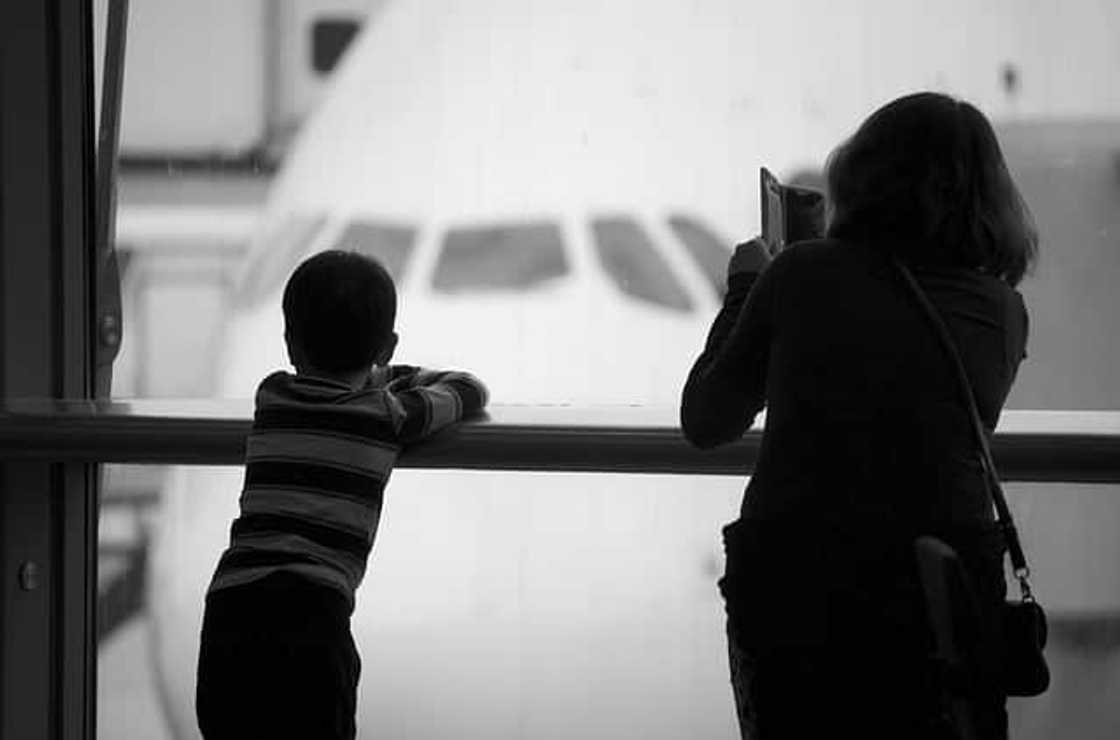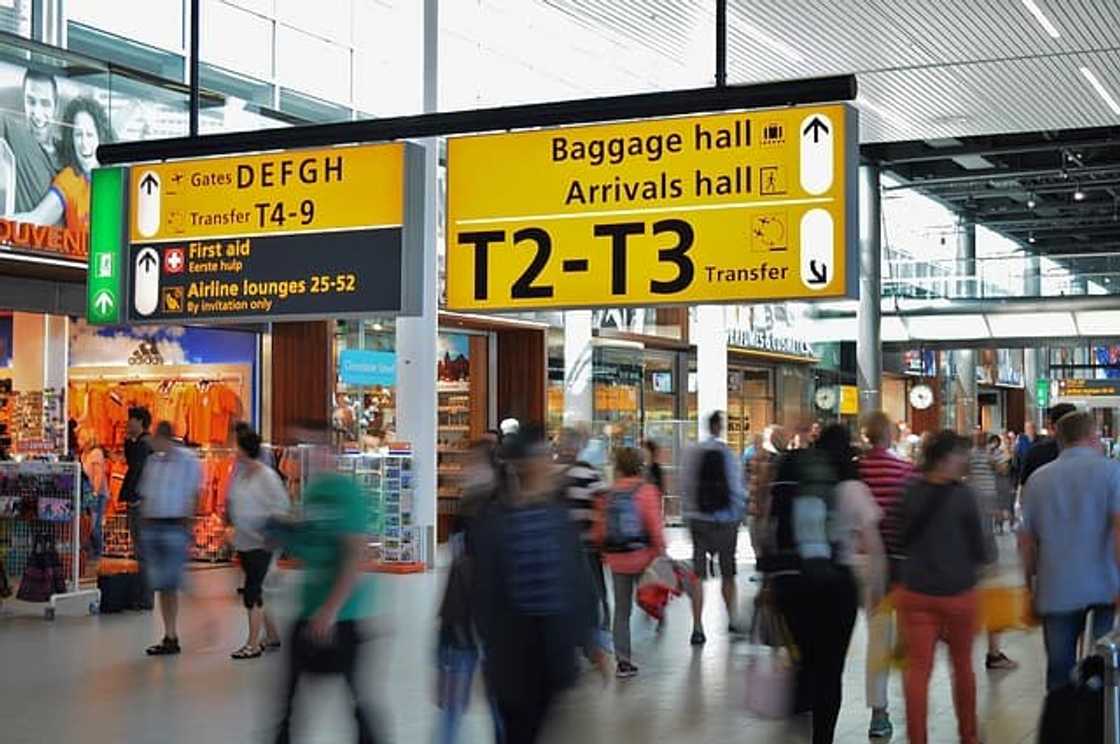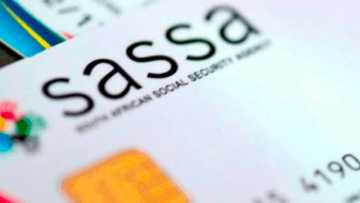Vital requirements on child traveling with one parent South Africa 2022
When it comes to the issue of a child traveling with one parent South Africa, there is a lot of information that one is expected to have beforehand. On top of that, there are vital documents one is expected to bring along with them. The law was changed in 2015 and then revamped again in 2018, yet most outlets are still reporting the outdated guidelines. This article will break down everything you need to know about the process.
PAY ATTENTION: Follow Briefly News on Twitter and never miss the hottest topics! Find us at @brieflyza!

Source: Depositphotos
On the topic of a child traveling with one parent South Africa, there are a lot of necessities that must be met. This article will direct you to downloadable versions of the forms that you need to fill prior to embarking on your journey.
What documents are required when traveling with a child?
In 2015, the South African government tightened the laws around traveling with minors following an upsurge in reports of child trafficking. The new laws had the effect of discouraging tourists due to the amount of paperwork required. The laws were relaxed in 2018. The official requirements are below, with the sections they appear in provided for reference.
According to the guidelines, the term “parent” includes legal guardians and adoptive parents unless the context suggests otherwise (4.5). A child refers to a person below the age of 18 years (4.3). Note that this does not include foster care (4.1).
Enjoy reading our stories? Download the BRIEFLY NEWS app on Google Play now and stay up-to-date with major South African news!
In the case of one parent accompanying the minor, provide the following:
- A valid passport;
- A birth certificate or a document that is equivalent to one;
- A parental consent affidavit from the other parent whose name is on the birth certificate but is not traveling.
Foreigners are only required to bring their valid passport.

Source: UGC
Do I need to bring my child birth certificate when flying to South Africa?
The content above states that you need a birth certificate or a document that is its equivalent if you are a South African. In the absence of a valid birth certificate, the Department of Home Affairs (DHA) accepts some other documents (4.4). Some examples are:
- An official child passport with the information of both parents that has been issued by the relevant authority in its respective jurisdiction;
- A signed letter issued by a foreign governing body, including a foreign embassy;
- A letter signed and issued by the Director-General of the Department of Home Affairs of the Republic of South Africa.
How do you write a letter of consent for a child to travel with one parent?
This is an essential minor travel document and should not be older than six months when it is presented to Home Affairs (4.6). It should contain enough identifying information of the parent not traveling, achieved through attaching a copy of their identification card (ID) or passport.
It is also advised that it comes with the following attached as required:
- Birth certificate of the child traveling;
- Court order (where applicable);
- Death certificate of any deceased parent reflected on the birth certificate;
- ID or passport and visa of the person receiving the child in the Republic;
- ID or Passport of parent(s) or legal guardian(s).
You do not have to draft one from scratch because luckily, there is an official Department of Home Affairs parental consent affidavit form available for download in PDF format for you to fill in easily.
These guidelines are applicable to points of entry and do not apply to domestic travel requirements for minors South Africa. There are some other exemptions to the parental affidavit for child traveling with one parent as listed below.

Source: UGC
In the event of lack of capacity to consent (5)
The affidavit is also not required in the event that the relevant party is unable to consent due to something such as death, physical disability, mental incapacitation, etc. In this case, the persons acting on the child’s behalf should move to apply for a special dispensation (5.1). They do this by sending a request, full motivation, and supporting documents (such as a medical practitioner’s sworn affidavit) to the Office of the Director-General of Home Affairs, at their official email address: consent@dha.gov.za.
It should be noted that the rules and regulations for incapacitation do not extend to cover those who have simply refused to consent while being of sound body and mind (5.2). In this case, one can seek a court order as provided for in the Children’s Act, 2005 (Act No. 38 of 2005) under section 18(5).
Passport requirements South Africa
The requirements for children’s (defined as being under 18) passports are split at the age of 16. Those under this age get a child’s passport while those over it get the normal adult passports. For those under, their requirements are as follows:
- 2 color passport photographs that comply with the specifications although some offices will capture the pictures digitally;
- Copy of the birth certificate;
- Form DHA-73 (passport application form), completed;
- The requisite payable fees.
Parental input/participation is necessary and discussed in detail below.

Source: UGC
Do both parents need to be present for child passport in South Africa?
The DHA has the following guidelines:
- If the parents are still married, both must sign the DHA-73 and be present with the child when it is submitted. A letter of consent and a copy of their identification will no longer be accepted in their absence.
- If the parents are divorced, but sole custody has not yet been granted, they are directed to follow the same procedure as the one applicable to married couples.
- For deceased parents, a copy of their death certificate must be sent in with the application.
- Guardians must send proof from the High Court along with the application.
- For minors born out of wedlock, the consent of their biological father is necessary if the circumstances in section 21 of the Children’s Act apply, and both parents should be present.
- Where a parent’s whereabouts are not known, or a dispute related to consent arises, the matter should be referred to the Children’s Court. The decision is to be sent in with the application.
That concludes our article on the guidelines for traveling with one child in South Africa. Share the article widely as there is a chance some are not yet aware of the guidelines. If you found it informative, let us know your thoughts in the comments section below.
DISCLAIMER: This article is intended for general informational purposes only and does not address individual circumstances. It is not a substitute for professional advice or help and should not be relied on to make decisions of any kind. Any action you take upon the information presented in this article is strictly at your own risk and responsibility!
Source: Briefly News






